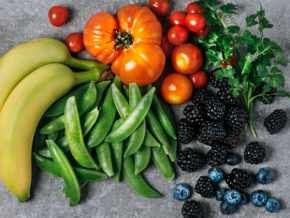
Folic Acid for pregnancy
To avoid any deficiencies, you need to eat a varied and balanced diet before even falling pregnant. Opt for food types rich in folic acid.
What is folic acid good for?
Folic acid (also known as Vitamin B9 or folate) is particularly important during the first two months of pregnancy. It plays a major role in the construction and proper functioning of the nervous system and is important for the development of the cells and the production of red blood corpuscles. Your requirements increase from the time of conception of the baby, as the maternal tissue expands (blood, uterus, etc.) and they will remain high during your entire pregnancy as the foetus grows.
This is why all women of procreating age, and especially those wishing to have a baby, are advised to monitor their folic acid intake so that they will have sufficient reserves once they fall pregnant.
On my plate…
The recommended intake of folic acid amounts to 600 micrograms per day for a pregnant woman. To meet your requirements, you should opt for:
- Meat: Ground beef (lean), cooked (3 ounces) = 7mcg; Chicken breast, roasted, ½ breast = 3mcg
- Green leafy vegetables: A plate of broccoli (100g) = 86mcg, cauliflower = 105mcg; A cup of shredded lettuce = 64mcg; ½ cup of boiled spinach = 131mcg
- Fruit: Fresh orange juice (150ml) = 45mcg; An orange = 29mcg; ½ cup of cubed fresh papaya = 27mcg; A medium banana = 24mcg
- Egg, whole, hard-boiled, 1 large = 22mcg
- Nuts: Hazelnuts, 5 nuts = about 28mcg
- Milk: 1 glass of maternal milk supplement (fortified with folic acid) = 125mcg
Folates are very sensitive to heat and light. You should thus avoid peeling your vegetables before cooking them. It is better to steam your vegetables or to cook them in little water. Also, vegetables should not be overcooked and try eating it soon after cooking so that it is not left to stand in the open air.
Our practical suggestions
- On a day-to-day basis, it is easy to consume sufficient folic acid by including a plate of green vegetables, some green salad and two or three pieces of fruit (especially citrus fruit). Also consider putting a large plate of legumes and/or cereals on the menu several times a week, along with eggs and cheese.
- Before you even fall pregnant, remember to consume sufficient foods rich in folic acid. You can also mention your desire for a baby to your doctor during a pre-conception check-up. He may recommend a folic acid supplement to take for four weeks before conception, as well as for some weeks afterwards. This is not always possible, as your pregnancy may not be planned or if you do not fall pregnant straight away!


















